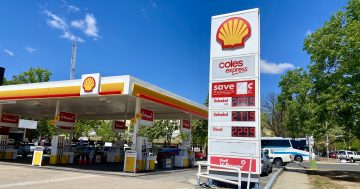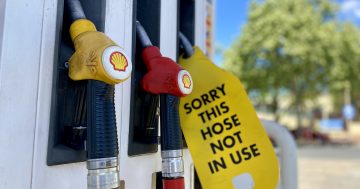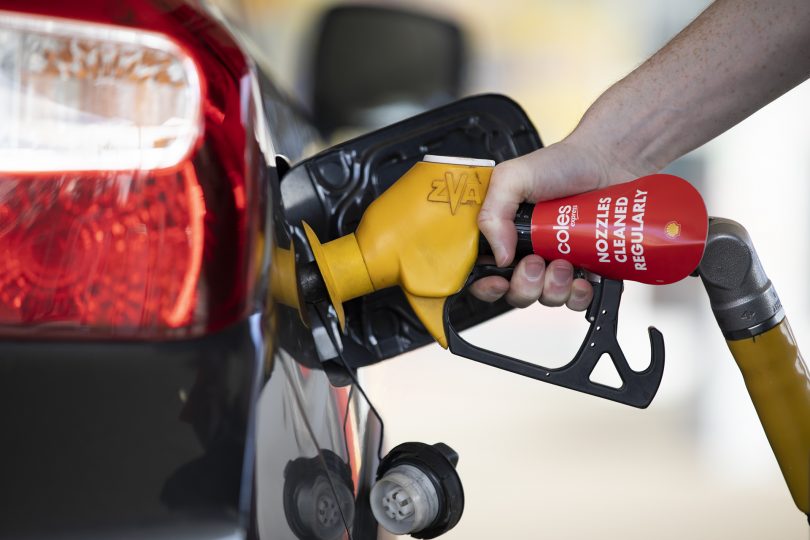
As of Tuesday, 8 March, the average price of unleaded petrol in the ACT is $1.94, the highest it’s ever been. Photo: Michelle Kroll.
Petrol prices in Canberra have hit a record high, with the average price for unleaded fuel heading towards $2 per litre, causing mounting concern over what it means for those already struggling to make ends meet.
The average price of unleaded petrol in the ACT began the year at $1.68 per litre. As of today, 8 March, it has risen to $1.94. The cheapest is available in Fyshwick at $1.84 while the most expensive is in Braddon at $1.97. This is the highest price Canberra has ever seen.
Since the beginning of 2022, global oil prices have spiked by 60 per cent, with flow-on effects at bowsers across the world.
The Australasian Convenience and Petroleum Marketers Association (ACAPMA) is the national peak body representing the interests of Australia’s fuel wholesale, distribution and retail industry, and it said the market has been growing increasingly “nervous” as the Russia-Ukraine crisis unfolds.
Russia is the second biggest producer of oil in the world, at almost five million barrels every day. By comparison, Australia produces 350,000 barrels per day.
“The market is speculating about the potential loss of that much oil, on the basis that Russia’s supply lines get cut off as a result of the war, or – more likely – the world prohibits the import of Russian oil,” ACAPMA CEO Mark McKenzie said.
“The market is now really nervous and traders are having to guess what supply will look like over the next few months.”
The US and several European nations have announced they are exploring banning imports of Russian oil in an effort to cripple the invader’s economy, but these countries – along with Australia – are trying to firm up a steady supply from the Organisation of the Petroleum Exporting Countries (OPEC) first.
OPEC is an intergovernmental organisation made up of 13 countries, all with extensive domestic reserves. Last week, the Morrison Government joined with 30 other economies to pressure these countries to use these reserves and free up global oil supply.
Mr McKenzie said, until this is sorted, the price will continue to “bounce around all over the place”.
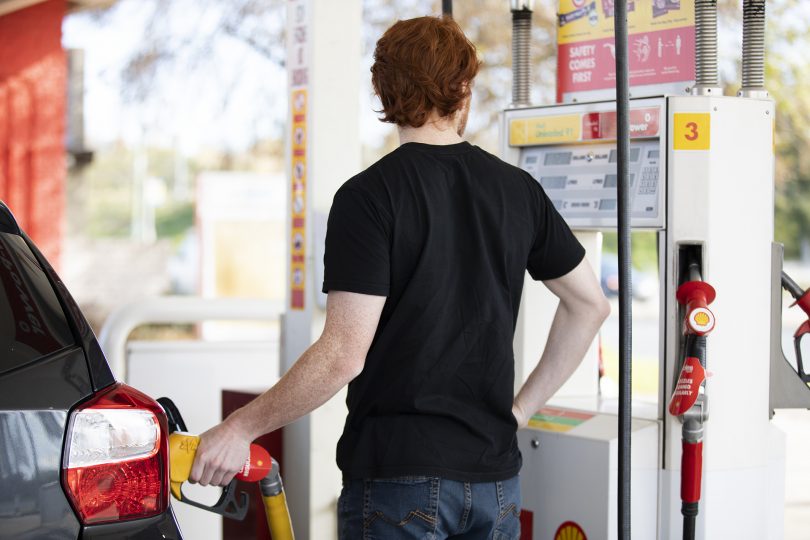
Never before has it been so painful to fill a car. Photo: Michelle Kroll.
Treasurer Josh Frydenberg has previously rejected calls to cut fuel excise, which contributes $11 billion every year to the Federal coffers, saying the money goes directly into funding vital infrastructure projects.
Not only is there a question mark over supply, Australia is also contending with a weak exchange rate. One Australian dollar currently buys 73 US cents.
“Oil trades in US dollars but we pay for it in Australian dollars, so the issue for us isn’t just where oil prices are going in US dollars, it’s the fact we’re paying for it with a weaker Australian dollar,” Mr McKenzie said.
“The exchange is very important in looking at why it is historically higher than previous oil price records.”
All pressures on the oil price are upward but Mr McKenzie said, at some point, “economies around the world are going to pare back their demand as consumers look for alternative means of transport”.
“This flattening of demand will then kick off a chain reaction and the price will begin to drop, but we’ve still got a long way to go before we hit that point, and oil is an essential product – business and industry still need it.
“At the moment, the only thing that’s certain is the uncertainty.”
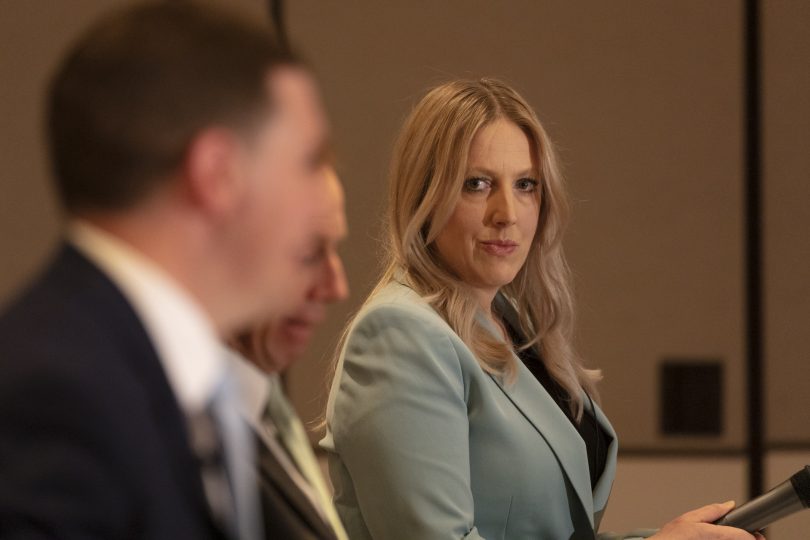
ACTCOSS CEO Dr Emma Campbell. Photo: Thomas Lucraft.
After housing and food, transport is the next biggest item of expenditure for low-income households in the ACT, according to the ACT Council of Social Services (ACTCOSS).
ACTCOSS CEO Dr Emma Campbell said the significant increase in fuel prices meant more of these households were having to choose between filling the car and paying the rent.
“This impact will be compounded in Canberra where we have the highest house and unit rents and where we have seen significant increases in the costs of other essentials like food, energy, health, and education in recent years.”
Dr Campbell is calling on the ACT Government to provide more concessions and rebates for public transport and to reduce transports costs through rebates on drivers’ licences and vehicle registration.
“In the longer term, as the ACT aims to transition to net-zero greenhouse gas emissions by 2045, government planning and support will be critical to ensuring that households are not left behind,” she said. “At present, many households face significant barriers to purchasing an electric vehicle and accessing charging infrastructure.”
Original Article published by James Coleman on Riotact.




